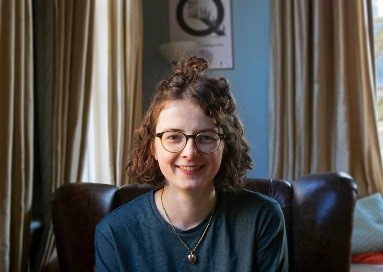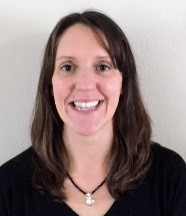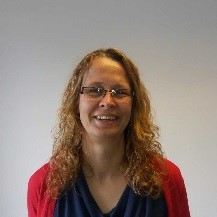Co-producing Health Services Research: The hows and whys
Friday 4 May 11am-5pm
Woburn House, London. WC1H 9HQ
What is ‘co-produced’ health services research? How do you do it? What helps make it happen? What are the challenges? When is (and isn’t) it appropriate? How can you capture the difference it might make? And is it worth it?
This highly pragmatic and interactive day, co-organised by NIHR Knowledge Mobilisation Research Fellows and HSR UK, will answer those and other questions.
Drawing on real-world experiences, co-production partners such as service users, commissioners, practitioners, the third sector, and even creative artists will share what did (and didn’t) work. Through workshops, participants will experience innovative approaches to co-produced health services research such as modelling, learning circles, participatory service evaluation, theatre and design. We will also have experts from Canada and the N8 Research Partnership to discuss how to capture the impact from co-production and reflect on the topics arising over the day in an interactive ‘co-production clinic’.
See more details about our speakers below:

Rachel Piper
Policy Manager at Student Minds
'Rachel has been working at Student Minds for 3 years, having also worked at The University Mental Health Advisers Network. Her role as Policy Manager focuses on tackling inequalities in student mental health, through research, policy and our partnerships with other organisations.'

Adele Higginbottom
Keele University
I have been involved with research as a lay member since 2006. I have been a member of the PPIE team since 2012. My role is PPIE Project co-ordinator, I help to support patients to work with researchers, design active PPIE in their research, also to monitor and provide advice. I have responsibility for the recruitment of lay members and have presented work on PPIE locally nationally and internationally.

Gary Hickey
INVOLVE
I am a Senior Public Involvement Manager at INVOLVE. At INVOLVE we support and encourage public involvement in NHS, health and public care research. My focus is on the development of guidance on co-producing research and the development of an international patient and public involvement network. I have over a decade of experience working in health and social care research, including public and patient involvement, within a university setting, and over a decade’s experience of working in research and project management within public sector organisations, both in the UK and overseas, on ethics and corruption.

Rachel Anthwal
STP Diabetes Programme Lead, Bristol CCG
I started my NHS career by accident, falling into a temporary role when I moved to Bristol. I found my passion and have never left, having the opportunity to grow and face new challenges along the way. The majority of my roles have been in the planning, contracting and managing of health services (commissioning) of the Clinical Commissioning Group. I am currently moving into a new role as Head of Contracts for out of hospital care.

Tony McBride
Cardboard Citizens
Tony has recently returned to freelancing having spent 8 years in post as Director of Projects with Cardboard Citizens. He has worked as a theatre director, facilitator and trainer for 30 years, exploring theatre as a site for learning and development with communities and organisations. Expert in Forum Theatre and other participatory theatre techniques, Tony has developed several community consultation and training models for use in NHS, Public Health and Housing contexts, engaging everyone from marginalised groups and individuals to CEO's.
Naomi Fulop
Professor of Health Care Organisation & Management, UCL
Naomi Fulop is Professor of Health Care Organisation & Management in the Department for Applied Health Research, University College London and Visiting Professor at King’s College London. Naomi trained in social sciences at the Universities of Bristol and London, and in public health at Harvard on a Fulbright scholarship. She is an internationally renowned health services researcher with expertise in applying organisational and social perspectives, using qualitative and mixed methods, to understand change and improvement in health care, both at different levels of the system, as well as locally, nationally, and internationally. She has a long-standing interest in the influence of research on health policy and practice. Naomi leads two large-scale studies, funded by NIHR, of major system change: one on acute stroke services in London and Greater Manchester; the other on the reorganisation of cancer surgery across London Cancer and Manchester Cancer.

Karen Coy
Senior Research Nurse, The Scar Free Centre for Children’s Burns Research
I have been working with children’s burns for the last 13 years, with the exciting move into research 9 years ago. Until last year when I went into full time research, I worked in the clinical acute setting alongside my research role. I have been leading the Children’s Burns Research Centre for the last 6years. My roles have given me the opportunity help nurse children following a range of burns severity and use my clinical understanding to influence the research projects we undertake.

Anita Kothari
Associate Professor, University of Western Ontario
Anita Kothari is an Associate Professor at the University of Western Ontario. Her research focuses on understanding how to best support the use of research and knowledge in healthcare decision-making; within this domain, she concentrates on integrated knowledge translation (i.e., research co-production) particularly in public health systems and services. Her academic background involved training in health research methodology, population health, and health policy and services. She was recently made a member of the College of the Royal Society of Canada.

Heather Campbell,
Professor of Town and Regional Planning, University of Sheffield
My research interests focus on how public policy interventions concerned with cities and regions can produce better outcomes and how research can better support transformational change. I led the N8 / ESRC Research Programme, ‘Knowledge That Matters: Realising the Potential of Co-production’, involving a partnership of universities and non-academic organisations across the North of England. The Programme highlighted the enormous potential of co-production to generate knowledge which is both academically excellent and has public benefit, but also the challenges such approaches present to conventional academic practices.

Michelle Farr,
Senior Research Associate, University of Bristol
I work at the National Institute for Health Research Collaboration for Leadership in Applied Health Research and Care West (NIHR CLAHRC West). My research interests include the co-production and co-design of public services and research, knowledge mobilisation, and evaluation methodologies based on realism and complexity. My PhD explored power dynamics in co-production and co-design projects. I have recently published work illustrating how co-production theory can support the implementation of healthcare technology.
